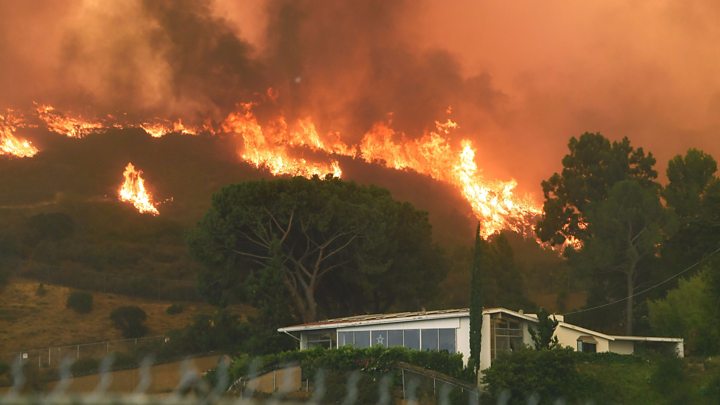
Why Americans continue to elect Democrats, whose policies are tyrannical and economically destructive, is a mystery.
That is especially the case in California, which is a case study in authoritarianism when one political party possesses a super majority.
Recently, California – an arid state despite the fact that it has a large Pacific coastline – suffered through several very destructive, deadly wildfires that many experts blamed on the Democrats’ goofy, nonsensical environmental policies.
In particular, environmental policies that prevent energy companies from clear-cutting dead brush and trees away from power lines.
“California has a lot of public land, federal land and state land, and there are strict restrictions on a lot of that regarding logging and even removal of dead and diseased trees,” notes Bonner Cohen, a senior fellow at the National Center for Public Policy Research. “You have tinderboxes brought to you courtesy of either the federal government, or the state government, or – tragically in some cases – both.”
But rationality isn’t something that guides Democratic environmental policy-making in California. As such, the state’s residents suffer.
As reported by Fox Business, because of the increasing instances of wildfires in the state, hundreds of thousands of residents are losing their fire insurance:
Insurance has become a serious problem in California as wildfires -- past and present -- wreak havoc on the state.
After last year’s devastating wildfires, insurance companies are balking at fire coverage policy renewals for more than 350,000 residents in high-risk areas.
“We are seeing an increasing trend across California where people at risk of wildfires are being non-renewed by their insurer," state Insurance Commissioner Ricardo Lara said in a statement, the network reported.
And those who still can get insurance are paying out the nose for it.
The California Department of Insurance “has seen cases where homeowners were paying an annual premium of $800-$1,000 but, upon renewal, saw increases to as high as $2,500-$5,000,” Lara noted, an outrageous increase of 300 percent in most of the cases.
The problem isn't "climate change"
The insurance department further noted that “some of these homeowners have conducted extensive and costly defensible-space and other mitigation, but these actions did not lower premiums.”
In other words, homeowners spent a fortune making their homes more fire resistant, but it didn’t matter a bit in terms of their premium costs.
Understand, however, that the insurance companies are not simply bilking California residents for no reason. Insurers are having trouble remaining profitable; they can’t find an economic model that works due to the increasingly common incidences of wildfires in the state.
And while Marxist Democrats claim to hate capitalism (unless they are profiting), the fact is companies cannot remain in business if they can’t make a profit.
“Experts consulted by the strike force believe climate change, development patterns, deferred utility equipment maintenance, and other factors suggest much-heightened risk going forward,” notes a report by California Gov. Gavin Newsom’s so-called strike force.
But, “predicting how much risk and how consistently is more difficult,” and “there is also uncertainty about the level of success we can expect in reducing the frequency and severity of wildfires.” (Related: California to shut down power for up to a WEEK in multiple counties to “prevent wildfires.")
Note how Democrats always blame something, or someone, else for their policy shortcomings and mistakes.
There is no “climate change” in the sense they mean it; California’s climate has always been arid, as Cohen noted. Also, blaming the power companies for failing to “maintain” their equipment is also disingenuous; if they were allowed to clear out dead brush from near their power lines and poles, there wouldn’t be as much fuel to burn if equipment sparks.
But what’s really damning is that California Democrats obviously prefer to play the blame game instead of adjust environmental policies that will decrease the chance for wildfires and, thus, enable residents to buy fire insurance again.
If you still live in the ‘Golden State,’ you might start thinking about voting differently.
Sources include:
Please contact us for more information.














